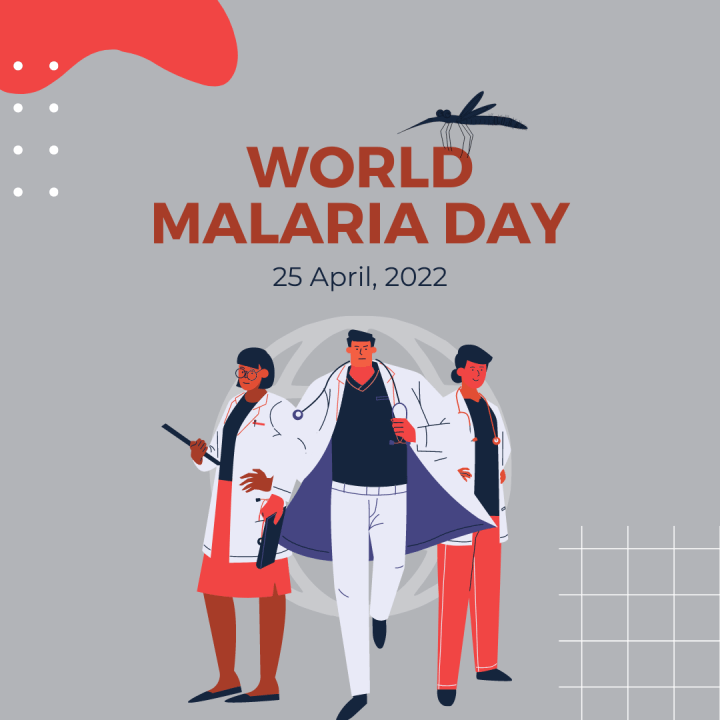World Malaria Day is observed annually on 25 April, to bring global attention to the efforts being made to bring an end to malaria, and encourage action to reduce suffering and death from the disease.
World Malaria Day 2022 will be marked under the theme “Harness innovation to reduce the malaria disease burden and save lives.” No single tool that is available today will solve the problem of malaria. WHO is calling for investments and innovation that bring new vector control approaches, diagnostics, antimalarial medicines and other tools to speed the pace of progress against malaria.
Malaria elimination is defined as the interruption of local transmission of a specified malaria parasite species in a defined geographical area as a result of deliberate activities. Continued measures are required to prevent re-establishment of transmission. Malaria eradication is defined as the permanent reduction to zero of the worldwide incidence of malaria infection caused by human malaria parasites as a result of deliberate activities. Interventions are no longer required once eradication has been achieved.
On April 25, 2017, World Malaria Day, GCPL (Godrej Consumer Products Ltd) committed to supporting a malaria-free India by 2030 and commissioned Project EMBED, which aims to reduce morbidity and mortality caused by vector-borne diseases. The project focuses on behavior change campaigns, imparting education and conducting awareness activities for communities at the bottom of the pyramid to be empowered to take charge of their own protection.
Tata Trusts provide frontline workers with portable microscopes to test for suspected cases of malaria. Vector control involves the removal of mosquito sites, door-to-door distribution of residual spray and mosquito nets, critical components of malaria prevention. The Trusts conduct school and village-level campaigns to promote awareness of the disease and its causal agents. These campaigns also introduce behavioral change to the community so as to reduce the incidence of the disease. The initiative has reduced cases significantly in the region.
The Foundation for Disease Elimination and Control of India (FDEC India), has been established by Sun Pharmaceutical Industries Limited, as part of its CSR. Malaria Elimination Demonstration Project (MEDP) is a Public Private Partnership between FDEC India, the Indian Council of Medical Research, and the Government of Madhya Pradesh. All three partner organisations share resources and responsibilities that contribute towards the success of the MEDP project. The support Sun Pharma receives from the National Vector Borne Disease Control Program (NVBDCP) and the inter-sectoral participation of local panchayats, civil society and other departments of the government contribute towards the accomplishment of the goal – to eliminate malaria in the Mandla district of Madhya Pradesh.
Despite steady advances in lowering the global burden of malaria between 2000 and 2015, progress has slowed or stalled in recent years, particularly in high burden countries in sub-Saharan Africa. Urgent and concerted action is needed to set the world back on a trajectory toward achieving the 2030 targets of the WHO global malaria strategy.
